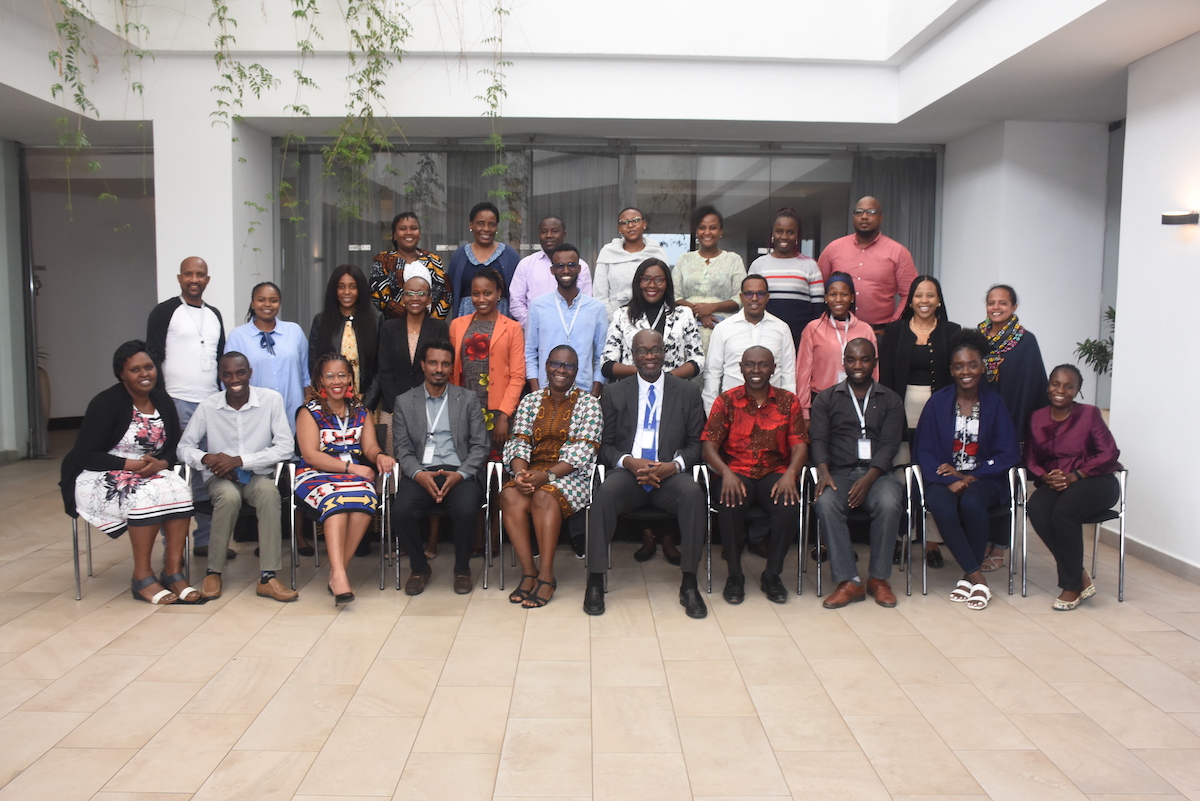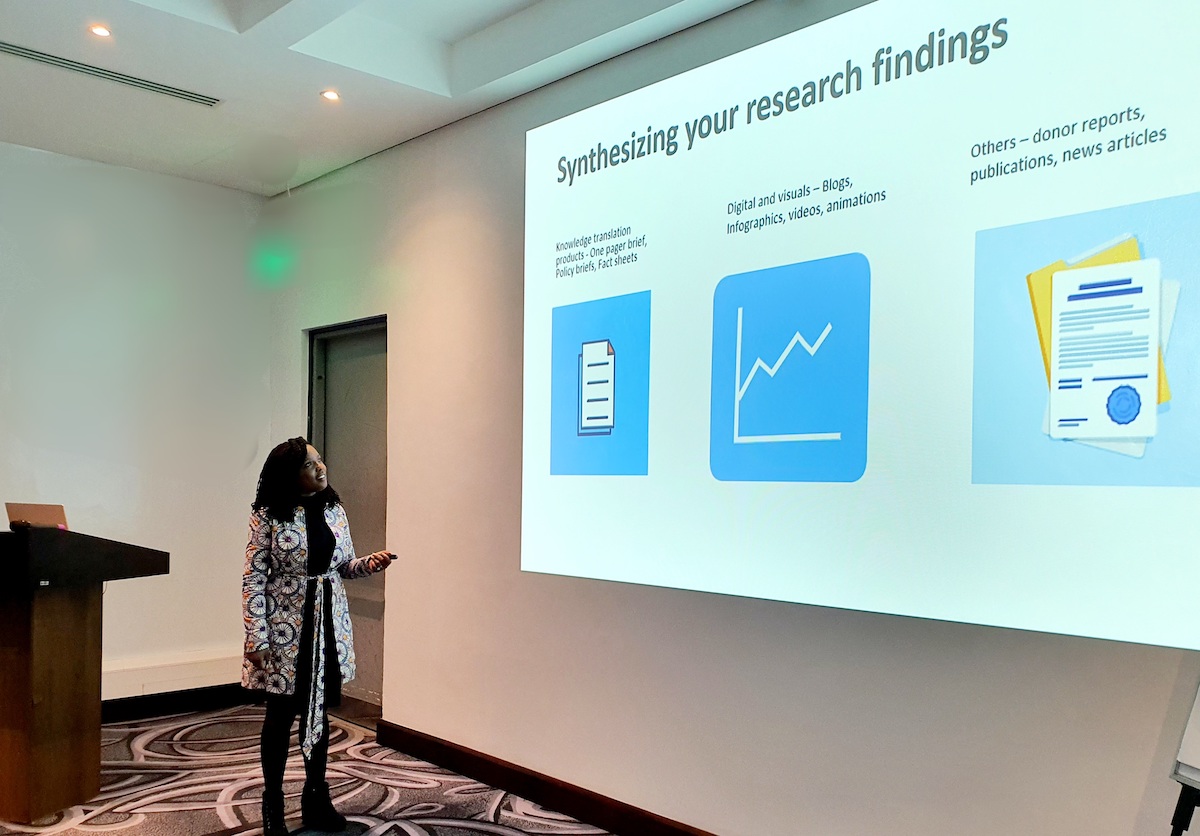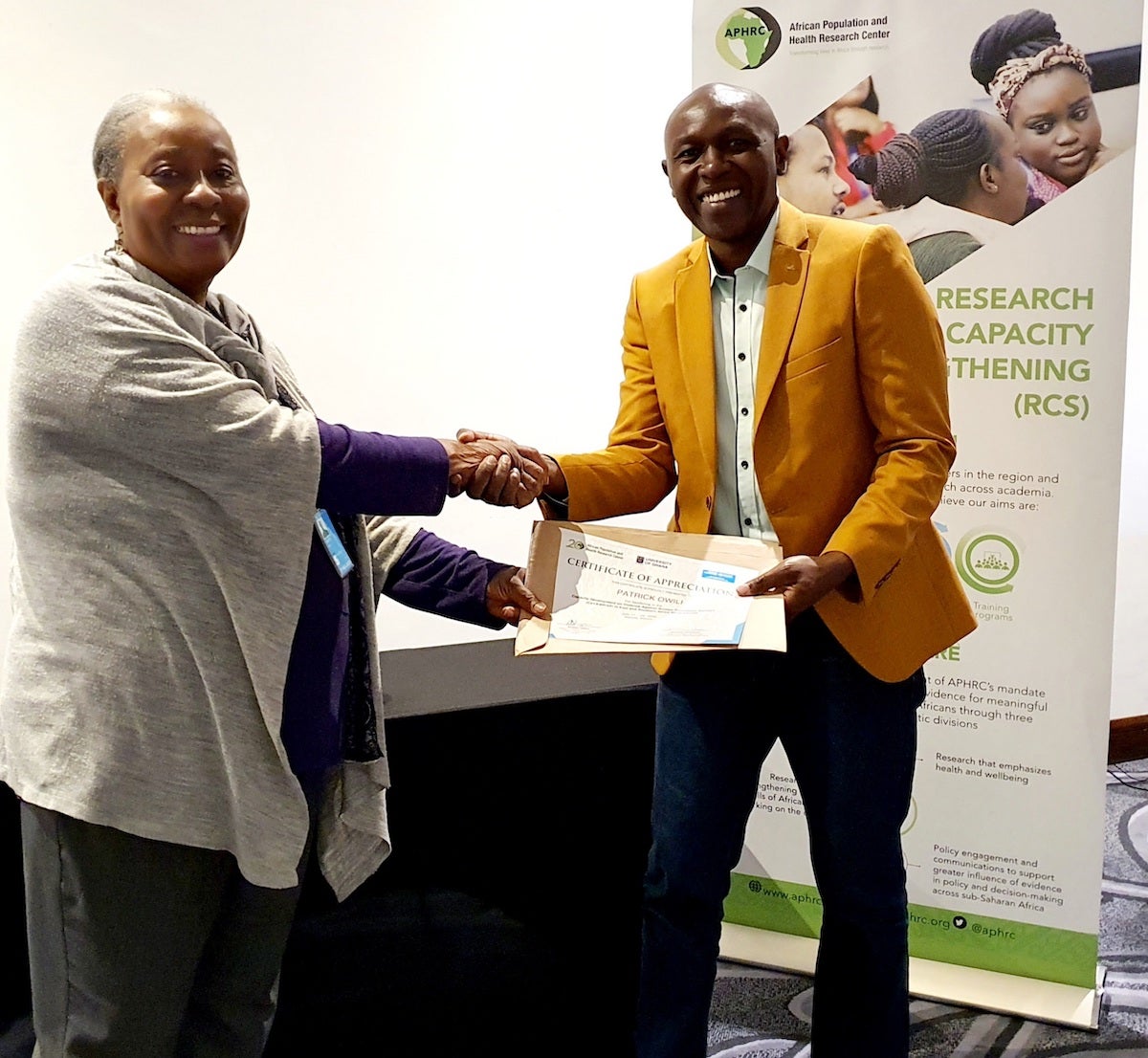A regional approach to using quality data to help end violence against women and girls
Date:

“Effectively addressing violence against women and girls (VAWG) is critical to achieving the Sustainable Development Goals. But there is inadequate data for informed policy formulation, action planning and strategic decision making in East and Southern Africa,” explains Jeremiah Wandili, Executive Director at the Wote Initiative for Development Empowerment (WIDE) in Tanzania. Mr. Wandili was one of 25 participants in a new regional short course training about VAWG prevalence surveys that was piloted for the first time in Kenya in July 2022. “I will use my new skills and knowledge on surveys to advocate for proper VAW data collection, management and utilization in my country, and to improve our campaigns on ending gender-based violence and promoting women’s rights,” Mr. Wandili added.

The training curriculum was developed under the framework of the Global Joint Programme on VAW Data that is implemented by UN Women and the World Health Organization. With a long-term approach to local capacity building in mind, the global programme partnered with the African Population and Health Research Centre (APHRC) and the Department of Population, Family and Reproductive Health at the University of Ghana, who led the design, development, and piloting of the course, ensuring the training is tailored to the context of ESA region and the needs of the local expertise.
The first pilot course included staff from National Statistics Offices, women’s machineries, civil society organizations, and research institutions from 11 countries in ESA. Their feedback further helped enhance the course to ensure that expertise will be embedded within institutions and organizations.
The course, entitled CaVAWPres, is delivered over 10 days and includes 18 modules. A key component of the training is the development of research protocols by participants over the course of the training. For instance, during the pilot course, two research protocols were finalized: ”Analysis of intimate partner violence in Southern Africa” and “Health system readiness for an integrative response to violence against women in Ethiopia.” Participants are also encouraged to explore funding opportunities. After the pilot course, nine out of 10 participants committed to submit their research proposals for funding.
“What I found most valuable was the learning,” says Ms. Leah Gwatimba (PhD), a consultant with the World Bank in Zimbabwe. “The modules were carefully designed and the content relevant to what the workshop was about. It has changed how I will design and collect data in the research that I conduct.”
When participating in the course, participants join a regional network of experts on VAW data. This network serves as an exchange platform during and after the course to continue engaging in south-south collaborative learning and advocacy on VAWG data. To date, through this online forum, participants are identifying resources and opportunities related to VAW work. The sharing of resources among regional experts enhances generation of high-quality and reliable data on VAW across the continent.
“Prior to the training my capacity to conduct surveys was very limited and I also believed that VAW data was exaggerated,” notes Mr. Wandili. “But the training changed my previous views on VAW data, and the modules are very practical and useful in ensuring effective data management of VAW prevalence in the African context. I would not hesitate to recommend the training to others working to end VAW.”

With the support of UN Women, APHRC and the University of Ghana are now working on institutionalizing the course within their academic programmes, including through digitalizing the course on their virtual academies. The course is also available on request and can be delivered in-person on a case-by-case basis.
“A journey of a thousand miles begins with a single step. By successfully conducting the pilot CaVAWPreS short course training, the first step which is the hardest in every journey, we are confident the course will be sustained. As part of APHRC’s sustainability plan, we will include the course in our virtual academy for wider access beyond ESA, continue to market it in our institutional website, and encourage course participants to continue engage in future collaboration and partnerships that focus on VAW work in the ESA region,” announced Prof. Hesborn Wao, the training coordinator at APHRC who manages this capacity-strengthening programme.
For more information on the course, please contact:
- Hesborn Wao, Training Coordinator, APHRC - [ Click to reveal ]
- Deda Ogum Alangea, Senior Lecturer, University of Ghana School of Public Health - [ Click to reveal ]
- Raphaëlle Rafin, Programme Specialist on VAW data, UN Women – [ Click to reveal ]